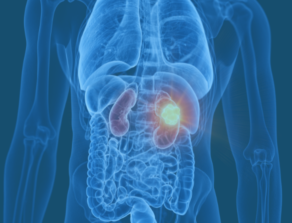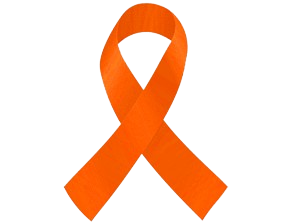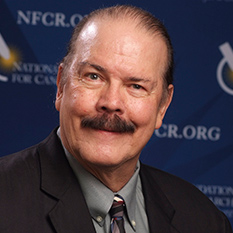Kidney Cancer
About Kidney Cancer
Kidney cancer is among the 10 most common cancers in both men and women. While the rate of people being diagnosed with kidney cancer has been slowly increasing since the 1990s, in part due to increased use of medical imaging, the death rate has been slowly declining since the middle of the 1990s.
Kidney Cancer Key Facts
- An estimated 81,610 new cases of kidney cancer will be diagnosed in the U.S. in 2024, with 14,390 deaths expected to result from the diagnosis.
- The lifetime risk for developing kidney cancer is about 1 in 43 in men and 1 in 73 in women.
- Men are twice as likely to develop kidney cancer as women.
- Kidney cancer is uncommon in people younger than 45 and the average age of people when they are diagnosed is 64.
- The overall five-year survival rate for people with kidney cancer is 79%.
- Risk factors include smoking, obesity, high blood pressure, family history of kidney cancer, advanced or chronic kidney disease, and exposure to radiation therapy or carcinogenic chemicals such as trichloroethylene. African Americans and American Indians/Alaska Natives have slightly higher rates of renal cell carcinoma (the most common type of kidney cancer) than Caucasians.
Source: American Cancer Society’s Cancer Facts & Figures 2024 and the Society’s website

- Quit smoking
- Control blood pressure
- Avoiding exposure to harmful substances
- Maintain a healthy body weight
- A healthy diet high in fruits and vegetables and low in fat
Resource:
Can Kidney Cancer Be Prevented? | American Cancer Society
Kidney Cancer: Risk Factors and Prevention | Cancer.Net
A symptom is a change in the body that a person can see and/or feel. A sign is a change that the doctor sees during an examination or on a laboratory test result. If you have any of the symptoms below, it does not mean you have cancer but you should see your doctor or health care professional so that the cause can be found and treated, if needed.
- Blood in the urine
- Low back pain on one side (not caused by injury)
- A mass (lump) on the side or lower back
- Fatigue (tiredness)
- Loss of appetite
- Weight loss not caused by dieting
- Fever that is not caused by an infection and that doesn’t go away
- Anemia (low red blood cell counts)
- swelling of the ankles and legs
- high blood pressure
- For men, rapid development of enlarged veins around a testicle (particularly the right testicle)
Source: American Cancer 2024 and American Society of Clinical Oncology Cancer.net 2022
- Smoking
- Obesity
- High blood pressure
- Family history of kidney cancer
- Workplace exposure, such as trichloroethylene
- Sex – more common in men
- Race/Ethnicity
- African Americans have a slightly higher rate of renal cell carcinoma (RCC: the most common type of kidney cancer) than white people
- Certain medicines, such as Acetaminophen
- Advanced kidney disease
- Genetic and hereditary risk factors:
- Von Hippel-Lindau disease
- Hereditary papillary renal cell carcinoma
- Hereditary leiomyoma-renal cell carcinoma
- Birt-Hogg-Dube (BHD) syndrome
- Familial renal cancer
- Cowden syndrome
- Tuberous sclerosis
- Sickle cell trait and disease
Resource: Risk Factors for Kidney Cancer | American Cancer Society
NFCR-Supported Researchers Working on Kidney Cancer
Danny R. Welch, Ph.D.
University of Kansas Cancer Center
Paul Fisher, M.Ph., Ph.D.
Virginia Commonwealth University School of Medicine
Webster K. Cavenee, Ph.D.
Ludwig Institute for Cancer Research
Xiang-Lei Yang, Ph.D.
Scripps Research
Wayne Marasco, M.D., Ph.D.
Dana-Farber Cancer Institute Harvard Medical School
Paul Schimmel, Ph.D.
Scripps Research

















